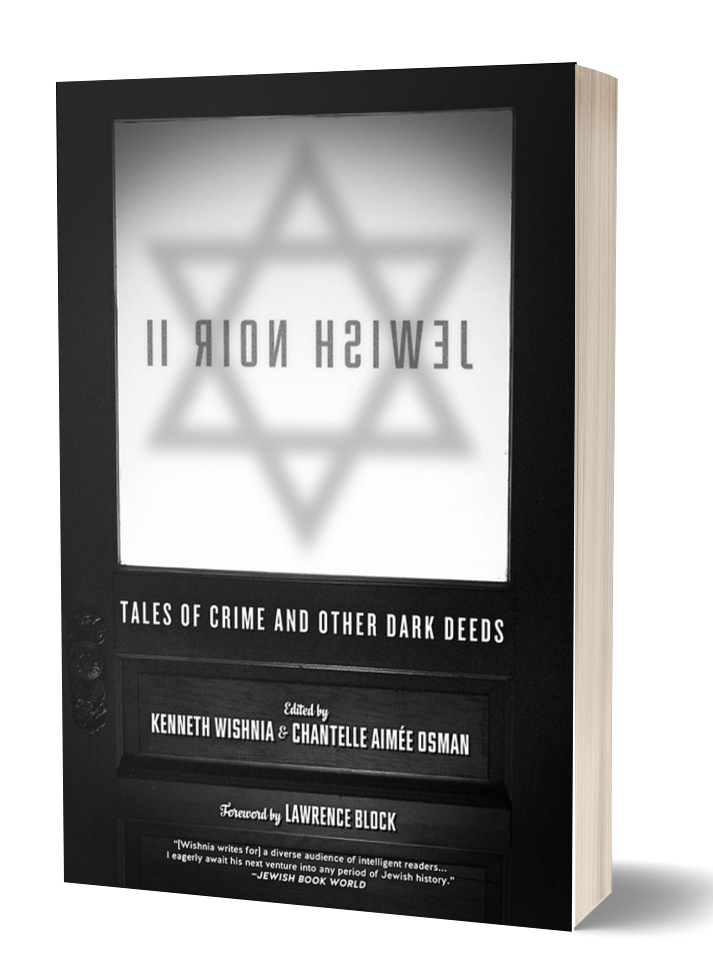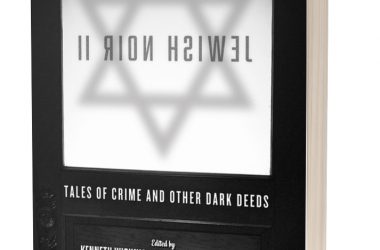By Kenneth Wishnia
Criminal Element
August 22, 2022
With his new book—Jewish Noir II—coming out tomorrow, Kenneth Wishnia visits the site to pay homage to some of the most badass women from the Old Testament.
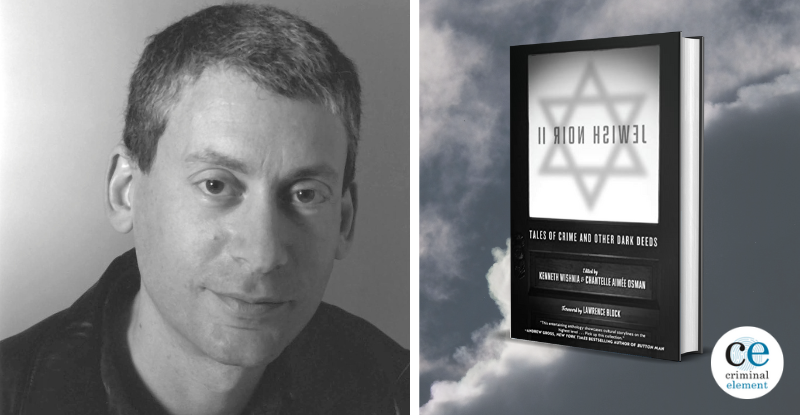
So, yeah, the Bible.
You’ve probably heard of it.
It’s a classic piece of crime writing, full of violence and betrayal, sexual slavery, greed, deception and murder. Been a bestseller for years.
Some decades ago, I married a Latina Catholic from Ecuador. As the child of Marxist-atheist Jews myself, it’s fair to say that I didn’t have a lot of familiarity with the Bible, and I figured it was time to learn, since I was going to be marrying into a large Catholic family. I read the New Testament first, which prompted me to get a parallel-text edition of the Hebrew Bible (what others call the Old Testament), with the Hebrew on one side and a slightly modified King James version on the opposite page. No explanatory notes at all. That was pretty challenging, but I was determined to get through it.
The King James translation is absolutely beautiful poetry, and many of its turns of phrase, along with lengthier passages, have entered the common language. But it’s not always clear what the heck is going on. All that early modern English phrasing can seriously alter or even obscure meaning. And if you’re bushwhacking through some of the thornier passages of the Bible, in early 17th century English no less, it can be pretty hard to follow the actions and the motivations of people responding to shifting political alignments in early Iron Age Israel circa 1050 BCE.
So this was my first time through the text, and when I got to Judges—which depicts a chaotic time characterized by instability and in-fighting among the twelve tribes of Israel, and with numerous regional enemies—some passages would just seem to drone on, you know, kings and battles, kings and battles, then suddenly an act of astonishing violence would smack me in the face and leave me rereading the text, trying to figure out who just did what to whom and why on earth they did it.
One passage that jumped off the page was a very short section, only four verses long, within a longer narrative, that I lacked the background to flesh out—until now, that is.
Two powerful women figure in it.
One of them is Deborah, the other is Yael.
You may have heard about Deborah, since most English translations call her a prophet and a judge, which sounds pretty damn impressive. Women could be judges in early Iron Age Israel? Awesome!
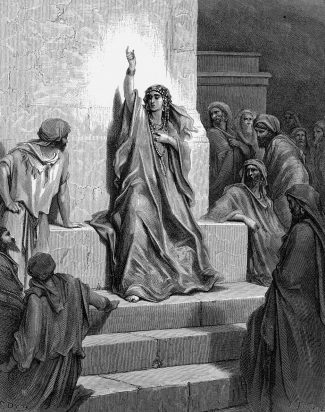
But it’s even more impressive in Hebrew. “Judges” is not really the best translation of the Hebrew shofetim, which means chieftains, not judges. The term chieftains gives a much better sense of the tribal nature of ancient Israel in the 11th century BCE, when the action takes place.
So Deborah was a chieftain, folks.
Most English translations obscure the meaning of the term.
Judges 4:4 even says “she led Israel at the time.” She led Israel. Think about what that means, what it implies and suggests, especially if we consider her title of chieftain. Could we please hear a bit more about her?
As for Yael, usually spelled Jael in modern translations (and Ya’el in Hebrew):
I’ve always been drawn to stories with strong female protagonists, and the tantalizingly brief story of Yael has been stuck in my mind since I first read about her in Judges 4-5 several decades ago, a scant four-verse sequence of events that includes a shockingly graphic act of violence.
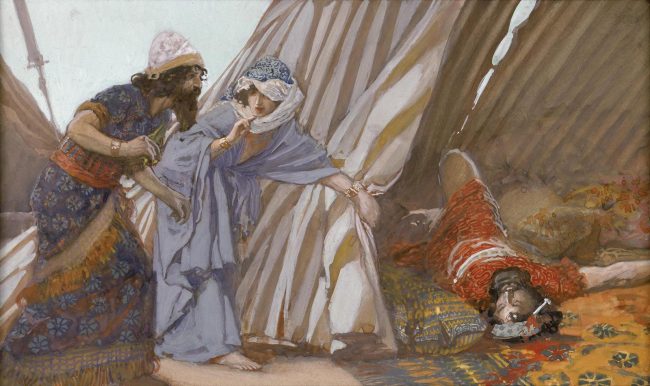
I’d always wondered what her motive was, since it isn’t spelled out in the source material. So I made one up. (It’s called fiction for a reason, folks.) But thanks to my recently acquired expertise with the source material, I believe I can claim that it’s entirely credible.
The larger narrative of Judges 4-5 depicts an unequal struggle with the Canaanite army because the sea people along the coast, a.k.a. the Philistines, have mastered the skills of ironworking, but are preventing this new and deadly technology from reaching the hill country of the Israelites, who have to make do with weaker, outdated weapons. (There is no way to confirm the historical accuracy of this claim based on the text alone, but it follows logically that the coastal traders would come in contact with a new technology like ironworking before the tribal clans of the rugged hill country.)
So the Israelites are at a technical disadvantage, outnumbered and outgunned, as it were: the army of King Jabin of Canaan can dispatch a force of 900 iron chariots against them. But the Israelites have some territorial advantage.
And some kickass women on their side.
Deborah isn’t just a chieftain, she’s also a prophet, for God’s sake, and she makes a prediction involving Yael.
How does it turn out? As you may have guessed, you’ll have to read the story to find out. (There’s this thing called dramatic suspense. Anyway—)
Yael’s story is told twice in Judges, once in relatively plain and direct prose, then more vividly in the Song of Deborah—which, along with the Song of the Sea, led by Moses’ sister Miriam, are thought to be among the oldest texts in the Hebrew Bible. Scholars believe that these two examples of lyric poetry celebrating victory in war, both attributed to women, date from circa 1000 BCE, not too long after the events depicted in the Song of Deborah.
These women must have held pretty important positions among the Israelites. The Torah calls Miriam a prophetess; the text of Judges calls Deborah a prophetess and a chieftain.
And as for Yael: Wow. This is a gal you want on your side.
‘Cause you don’t want to get on her bad side.
About Jewish Noir II: Tales of Crime and Other Dark Deeds, edited by Kenneth Wishnia & Chantelle Aimée Osman:
Jewish Noir II is unique collection of twenty-three all-new stories (and one reprint) by Jewish and non-Jewish literary and genre writers, including numerous award-winning authors such as Gabriela Alemán, Doug Allyn, Rita Lakin, Rabbi Ilene Schneider, E.J. Wagner, and Kenneth Wishnia, with a foreword by MWA Grand Master Lawrence Block.
The stories in this collection include many “teachable moments” about the history of prejudice, and the contradictions of ethnic identity and assimilation into American society.
